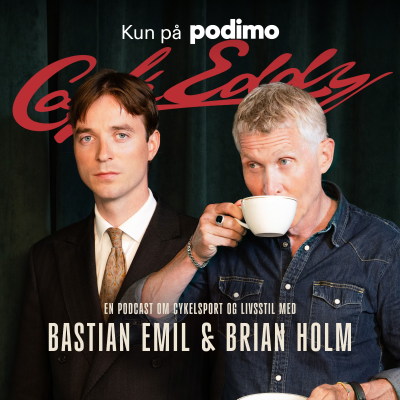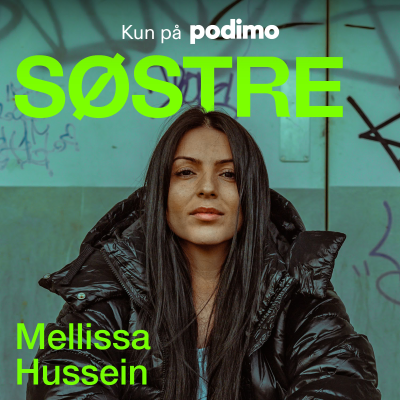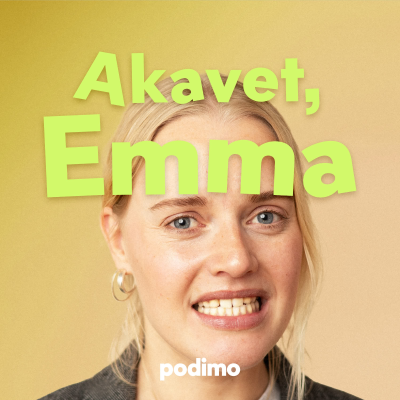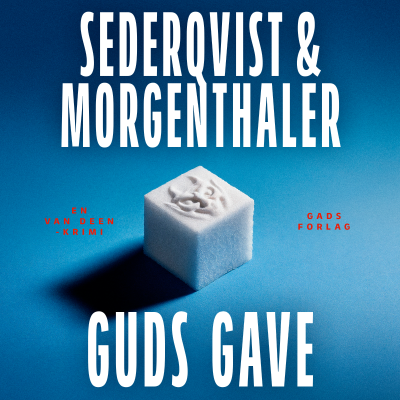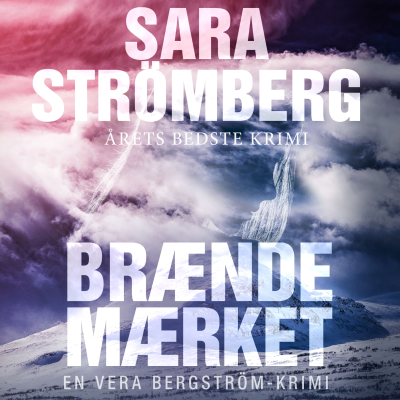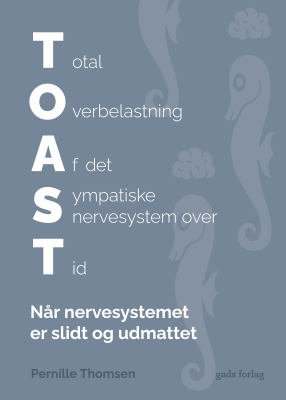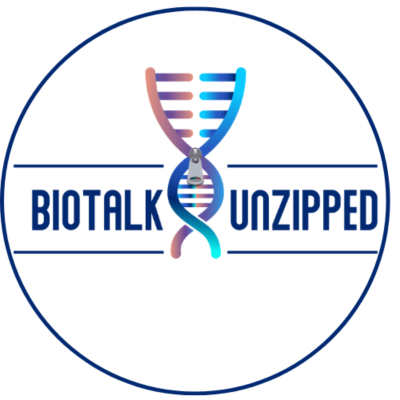
BioTalk Unzipped
engelsk
Videnskab & teknologi
Begrænset tilbud
2 måneder kun 19 kr.
Derefter 99 kr. / månedOpsig når som helst.
- 20 lydbogstimer pr. måned
- Podcasts kun på Podimo
- Gratis podcasts
Læs mere BioTalk Unzipped
Gregory Austin and Dr. Chad Briscoe unzip, unlock, and uncover, the Stories Behind Medical Progress by sharing the latest and greatest advances in biopharmaceuticals and medical technologies in a fun, entertaining, and enlightening interview format. We bring on innovative leaders across the life sciences. The format is like a conversation you might overhear at the bar or at dinner after a day of great life science talks at a conference, engaging and accessible.
Alle episoder
40 episoderInnovation: The Intersection of Biotech, Patent Law, and AI with Dr. Kate Neville, IP Attorney
Recorded October 31, 2025 In this episode of BioTalk Unzipped, Gregory Austin and Dr. Chad Briscoe sit down with Dr. Kate Neville, immunologist turned seasoned biotech patent attorney at Marshall, Gerstein & Borun, to unpack one of the most misunderstood and mission-critical areas of life sciences: intellectual property. If you are a biotech founder, scientist, executive, or investor, this conversation is essential listening. We explore what patent prosecution really means, when startups should begin thinking about IP protection, how “freedom to operate” can determine commercial viability, and how emerging AI tools are reshaping the patent landscape. Dr. Neville brings 25+ years of experience guiding university spin-outs, biotech startups, and global pharmaceutical companies through complex patent strategy. She has helped secure patents for FDA-approved drugs and offers a rare dual perspective as both scientist and attorney. IN THIS EPISODE WE DISCUSS: • The difference between patent prosecution and patent litigation • Why it is never too early for biotech startups to think about IP • The U.S. one-year grace period vs. Europe’s stricter disclosure rules • What “Freedom to Operate” really means for commercialization • Antibody patents, CDR regions, and the doctrine of equivalents • How premature disclosure can impact global patent strategy • The real-world back-and-forth of patent office “office actions” • AI-assisted prior art search at the USPTO — opportunity or risk? • How funding cycles influence patent filing decisions • Women in biotech leadership and venture funding disparities • The most rewarding part of protecting life-changing therapies We also break down the USPTO’s new AI pilot programs designed to modernize patent examination and discuss how artificial intelligence may impact biotech patenting over the next several years. WHY THIS MATTERS Intellectual property is often the single most valuable asset in a biotech company. Strong IP strategy can unlock funding, partnerships, and market exclusivity. Weak or mistimed IP decisions can permanently limit global opportunity. For founders and scientists: timing, geography, and disclosure discipline matter more than most people realize. ABOUT OUR GUEST Dr. Kate Neville Partner, Marshall, Gerstein & Borun PhD in Immunology, JD LinkedIn: https://www.linkedin.com/in/kate-neville-phd/ [https://www.linkedin.com/in/kate-neville-phd/] Firm Bio: https://www.marshallip.com/katherine-l-neville-ph-d/ [https://www.marshallip.com/katherine-l-neville-ph-d/] Charity Highlight: Girls on the Run Chicago An organization building confidence and resilience in young girls through mentorship and athletic achievement. https://www.girlsontherun.org/ [https://www.girlsontherun.org/] HOSTS Dr. Chad Briscoe Bioanalytical Scientific Leader https://www.linkedin.com/in/chadbriscoe/ [https://www.linkedin.com/in/chadbriscoe/] Gregory Austin Director, Business Development | Bioanalysis https://www.linkedin.com/in/gregoryaustin1/ [https://www.linkedin.com/in/gregoryaustin1/] If you enjoyed this episode, subscribe to BioTalk Unzipped on Apple Podcasts, Spotify, or your preferred platform and share with a colleague in biotech, pharma, or life sciences innovation.
Long-acting Cell-Based Gene Therapy, Fabry Disease and Beyond with Glafabra CEO, Dr. Chris Hopkins
In this episode of BioTalk Unzipped, hosts Gregory Austin and Dr. Chad Briscoe sit down with Glafabra CEO: Dr. Chris Hopkins, geneticist, biochemist, and biotech entrepreneur, to explore the science and strategy behind next generation cell-based gene therapies for rare diseases. With more than 25 years of experience spanning gene augmentation, rare disease biology, CRISPR licensing, and biotech formation, Dr. Hopkins shares how autologous, ex vivo engineered cell therapies may overcome key limitations of current enzyme replacement and viral gene therapies, particularly for Fabry disease. The conversation dives deep into: • How lentiviral gene augmentation in patient derived cells enables sustained enzyme production • Why redosing matters and where one time AAV therapies fall short • The scientific rationale for early intervention, including potential newborn treatment • Differences between autologous and emerging allogeneic approaches • Regulatory pathways for rare disease therapies and recent FDA developments • The role of non animal models in translational research • Montana’s early access therapy law and its broader implications • Building biotech platforms amid a challenging funding environment Topics include cell based gene therapy, Fabry disease, lentiviral vectors, stem cell engineering, rare disease drug development, regulatory science, and translational medicine. Subscribe to BioTalk Unzipped for in depth conversations with the scientists and leaders shaping the future of biomedical innovation. 00:00 - Intro 00:53 – Welcome to BioTalk Unzipped, Guest intro: Dr. Chris Hopkins 02:10 – Guest charity: Environmental Defense Fund 03:12 – His journey into rare-disease therapeutics and Glafabra 05:58 – Discovering a new enzyme-deficiency therapy 06:39 – Current standard of care 07:42 – How the new autologous cell therapy works 09:40 – Treating patients earlier (even newborns) 10:33 – Emerging therapies - AAV gene therapy vs. cell-based therapy 12:16 – Long-term results & repeat dosing 14:30 – Future plans: T-cells & allogeneic approaches 18:08 – New News: FDA resubmission for rare disease 20:00 – Navigating FDA pathways 22:06 – Non-animal testing & alternative models 25:50 – Montana’s early-access therapy law & medical tourism 29:03 – Could other states follow? 31:31 – Biotech’s current funding challenges 33:46 – New News: Gene therapy trial saves 4-year-old 37:09 – Long-term vision for expanding therapies 39:53 – Personal segment: outdoor life & skiing 44:43 – Guest question on international trade Dr. Christopher Hopkins https://www.linkedin.com/in/christopherehopkins/ [https://www.linkedin.com/in/christopherehopkins/] Glafabra - https://www.glafabra.com/ [https://www.glafabra.com/] Environmental Defense Fund - https://www.edf.org/ [https://www.edf.org/] Dr. Chad Briscoe https://www.linkedin.com/in/chadbriscoe/ [https://www.linkedin.com/in/chadbriscoe/] Celerion - https://www.celerion.com/ [https://www.celerion.com/] Gregory Austin https://www.linkedin.com/in/gregoryaustin1/ [https://www.linkedin.com/in/gregoryaustin1/] Celerion - https://www.celerion.com/ [https://www.celerion.com/] New News Articles: US FDA asks Stealth BioTherapeutics to resubmit application for rare genetic condition therapy https://www.reuters.com/business/healthcare-pharmaceuticals/us-fda-asks-stealth-biotherapeutics-resubmit-application-rare-genetic-condition-2025-05-29/ [https://www.reuters.com/business/healthcare-pharmaceuticals/us-fda-asks-stealth-biotherapeutics-resubmit-application-rare-genetic-condition-2025-05-29/] Gene therapy trial saves boy, 4, from 'death sentence' https://www.thetimes.com/uk/healthcare/article/gene-therapy-trial-great-ormond-street-70l2sgqw [https://www.thetimes.com/uk/healthcare/article/gene-therapy-trial-great-ormond-street-70l2sgqwj] Montana, revolutionary law passed: unlimited research for longevity https://en.ilsole24ore.com/art/montana-approved-revolutionary-law-researching-longevity-without-limits-AHmDI7BB?refresh_ce=1 [https://en.ilsole24ore.com/art/montana-approved-revolutionary-law-researching-longevity-without-limits-AHmDI7BB?refresh_ce=1] KEY TAKEAWAYS 1. A NEW CELL THERAPY COULD REPLACE LIFELONG ENZYME TREATMENTS FOR FABRY PATIENTS. 2. UNLIKE GENE THERAPY, THIS TREATMENT CAN BE REDOSED — NO ONE-AND-DONE LIMIT. 3. EARLY INTERVENTION, EVEN IN NEWBORNS, MAY BECOME POSSIBLE. 4. MONTANA’S NEW LAW COULD OPEN A FAST LANE FOR EXPERIMENTAL THERAPIES IN THE U.S. 5. DESPITE A TOUGH FUNDING CLIMATE, BREAKTHROUGHS SHOW GENE-EDITED CELL THERAPIES ARE RESHAPING THE FUTURE. #CELLTHERAPY #GENEEDITING #RAREDISEASE #BIOTECHINNOVATION #GENETICMEDICINE #HEALTHCAREFUTURE #MEDICALBREAKTHROUGH #CellBasedGeneTherapy #RareDisease #FabryDisease #GeneAugmentation #LentiviralVectors #Biotech #TranslationalScience #GeneticMedicine #BioTalkUnzipped https://youtu.be/VcPXZmK-XU8 [https://youtu.be/VcPXZmK-XU8]
Fail Fast, Learn Faster: Drug Development in Rare Disease with Dr. Binodh DeSilva
In this episode of BioTalk Unzipped, Gregory Austin and Dr. Chad Briscoe sit down with Dr. Binodh DeSilva, Senior Vice President of Bioanalysis at Ultragenyx Pharmaceutical, to explore the science and soul behind rare-disease drug development. From her early days studying electrochemistry at the University of Kansas to leading cutting-edge bioanalytical programs at Ultragenyx, Dr. DeSilva shares how curiosity and community shaped her four-decade career. She discusses the profound responsibility of working with limited, often irreplaceable patient samples with care. A special thanks to AAPS (https://www.aaps.org/ [https://www.aaps.org/]) for their help and support of this episode. The conversation dives into: * Balancing rigor and agility in small-population clinical studies * Leveraging entrepreneurial mindsets from biotech within big pharma frameworks * The promise of dried blood spots (DBS) and patient-centric sampling * Mentorship, curiosity, and the future of scientific leadership * Her return to Sri Lanka with KU faculty to recruit the next generation of scientists Throughout the discussion, DeSilva underscores a recurring theme: science thrives when curiosity meets compassion. This episode is a masterclass in both. Guest Links Dr. Binodh DeSilva https://www.linkedin.com/in/binodh-desilva/ [https://www.linkedin.com/in/binodh-desilva/] Ultragenyx Pharmaceuticals - https://www.ultragenyx.com/ [https://www.ultragenyx.com/] Hosts Dr. Chad Briscoe https://www.linkedin.com/in/chadbriscoe/ [https://www.linkedin.com/in/chadbriscoe/] Celerion - https://www.celerion.com/ [https://www.celerion.com/] Gregory Austin https://www.linkedin.com/in/gregoryaustin1/ [https://www.linkedin.com/in/gregoryaustin1/] Celerion - https://www.celerion.com/ [https://www.celerion.com/] Keywords: BioTalk Unzipped, Binodh DeSilva, Ultragenyx, rare disease research, bioanalysis, dynamic drug development, dried blood spots, DBS sampling, biologics, AAPS NBC 2025, Gregory Austin, Chad Briscoe, Celerion, scientific leadership, mentorship in science, biopharma innovation, curiosity in research, Sri Lanka scientists, analytical chemistry, pharma innovation, drug development ethics.
Unlocking Antibody Development with AI with Dr. Pin-Kuang Lai
In this episode of BioTalk Unzipped, hosts Gregory Austin and Dr. Chad Briscoe interview Asst. Professor Pin-Kuang Lai from Stevens Institute of Technology about his keynote speech at AAPS NBC 2025 and the intersection of AI and molecular engineering, particularly in predicting the viscosity of monoclonal antibodies. They discuss the challenges of high concentration formulations, the importance of AI validation, and the future of formulation development. Lai shares insights from his international research journey and collaborations with pharmaceutical companies, as well as opportunities for students interested in this field. 00:00 Preview & Intro 01:58 Deep Viscosity and AI in Antibody Development 04:39 AI Validation and Model Reliability 07:12 International Journey and Collaborative Research 08:42 Future of Formulation Development 10:30 AAPS NBC Experience 11:30 Academic vs. Industry Career Paths 12:31 Collaboration with Pharmaceutical Companies 13:59 Modeling Protein Aggregation Challenges 14:43 Student Engagement and Research Opportunities 15:45 Expanding Applications of Machine Learning Dr. Pin-Kuang Lai https://www.linkedin.com/in/pin-kuang-lai/ Stevens Institute of Technology - https://www.stevens.edu/ Dr. Lai’s Publications - https://www.linkedin.com/in/pin-kuang-lai/details/publications/ The DeepViscosity Model - https://devpred.onrender.com/DeepViscosity Dr. Chad Briscoe https://www.linkedin.com/in/chadbriscoe/ Celerion - https://www.celerion.com/ Gregory Austin https://www.linkedin.com/in/gregoryaustin1/ Celerion - https://www.celerion.com/
The Science and Hope of Brain Cancer with Dr. Robert Thorne, Denali Therapeutics
In this powerful episode (#35) of BioTalk Unzipped, recorded live at the AAPS NBC conference in Boston, Gregory Austin engages in a deep conversation with a leading Neuroscientist, Dr. Robert Thorne, Denali Fellow at Denali Therapeutics, for an intimate and scientific deep dive into the evolving world of brain cancer treatment and CNS drug delivery. Both Gregory and Dr. Thorne share personal stories of losing family members to brain metastases, weaving in the emotional 'why' behind their professional paths. Dr. Thorne highlights the complexities of the blood-brain barrier, the heterogeneity of brain metastases, and cutting-edge delivery technologies—including focused ultrasound and molecular engineering approaches. The conversation also touches on pediatric brain tumors like diffuse midline glioma (DIPG), emerging research in lysosomal storage diseases, and the collaborative spirit driving innovation in neuroscience today. This is more than a technical discussion—it’s a human story about grief, hope, and the relentless pursuit of better outcomes for patients with brain diseases. 00:00 Preview & Intro 01:10 Robert Thorne’s Reflections on the AAPS NBC conference 03:14 The Professional Biotech and Pharma League 05:09 A Personal Story Shared: Family Loss to Brain Cancer 07:57 My Reason for Optimism Treating Brain Cancer 08:50 Why Brain Metastases Remain Hard to Treat 11:10 Scientific Advances in Drug Delivery for Brain Cancer 12:30 Seed and Soil Concept in Oncology 15:18 Pediatric Brain Tumors: DNET, DIPG, and Beyond 16:49 Looking Ahead: Hope for Future Therapies 21:32 Closing Gratitude Dr. Robert Thorne https://www.linkedin.com/in/robert-g-thorne/ [https://www.linkedin.com/in/robert-g-thorne/] Denali Therapeutics - https://www.denalitherapeutics.com/ [https://www.denalitherapeutics.com/] Dr. Chad Briscoe https://www.linkedin.com/in/chadbriscoe/ [https://www.linkedin.com/in/chadbriscoe/] Celerion - https://www.celerion.com/ [https://www.celerion.com/] Gregory Austin https://www.linkedin.com/in/gregoryaustin1/ [https://www.linkedin.com/in/gregoryaustin1/] Celerion - https://www.celerion.com/ [https://www.celerion.com/] KEY TAKEAWAYS: * Personal Connection Fuels Professional Passion: Both Gregory and Dr. Thorne were driven into the life sciences field by family experiences with brain tumors. * The Blood-Brain Barrier (BBB) Remains a Major Challenge: Brain metastases from cancers like melanoma, lung, and breast cancer still present difficult delivery barriers for therapies. * Heterogeneity in Brain Mets: Different metastases within the same patient can have vastly different BBB permeability, requiring multifaceted delivery strategies. * Emerging Drug Delivery Innovations: Focused ultrasound, engineered biologics, and Denali’s own delivery platforms are all promising ways to improve CNS drug penetration. * Pediatric Brain Cancers Present a Unique Set of Challenges: Diseases like diffuse midline glioma (DIPG) remain largely untreatable, but learnings from lysosomal storage disorders may translate in the future. * The Power of Community in Science: The conference setting highlights how collaboration and diverse perspectives drive breakthroughs in bioanalysis and drug development.
Vælg dit abonnement
Begrænset tilbud
Premium
20 timers lydbøger
Podcasts kun på Podimo
Gratis podcasts
Opsig når som helst
2 måneder kun 19 kr.
Derefter 99 kr. / måned
Premium Plus
100 timers lydbøger
Podcasts kun på Podimo
Gratis podcasts
Opsig når som helst
Prøv gratis i 7 dage
Derefter 129 kr. / måned
2 måneder kun 19 kr. Derefter 99 kr. / måned. Opsig når som helst.






